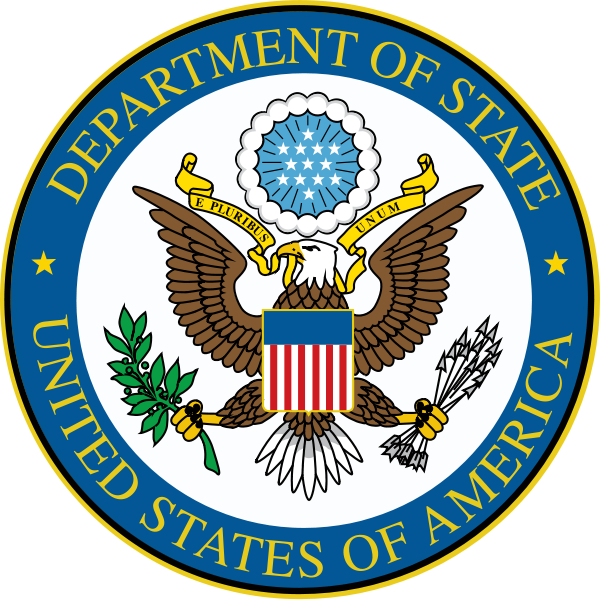Case Studies
21's work in the international sports & entertainment industry is unparalleled.
- EY Strategic Marketing Campaign in Brazil
- Olympics/Paralympic Strategic Activation - Visa
- Olympic Strategic Activation – Visa Gold Medal Athlete Program
- Olympic/Paralympic Sales - The TOP Programme
- The United States Olympic Committee and NBC Sports Integrated Sales Platform
- The United States Olympic Committee - P&G Partnership
- FIFA World Cup™- Visa Partnership
- Johnson & Johnson's Partnership of the 2014 FIFA World Cup™
- 1994 FIFA World Cup™ -- Partnership Sales
- 1994 FIFA World Cup™ -- American Airlines Activation
- Smithsonian Institution’s 150th Anniversary
- Jerry Jones & the Dallas Cowboys
- Disney’s Strategic Partnership with Visa
- Rugby World Cup Strategic Activation – Visa
- America’s Cup – Partnership Sales
- The 21 Empirical Solution
- EY's sponsorship of mega sport and entertainment events in Brazil
- Official Visit to Brazil by The Secretary’s Special Representative for Global Intergovernmental Affairs Reta Jo Lewis And Delegation
- Special Olympics World Games
- International Sailing Federation (ISAF)
- New York Road Runners, Airbnb
- 21 Image Library
- 21 Marketing Case Studies and Capabilities
Official Visit to Brazil by The Secretary’s Special Representative for Global Intergovernmental Affairs Reta Jo Lewis And Delegation
Tom Shepard invited to attend and participate in the Official Visit to Brazil by The Secretary’s Special Representative for Global Intergovernmental with Affairs Reta Jo LewisAnd Delegation. Representing 21 as an expert who understands best practices with government as Brazil approaches the FIFA World Cup and 2016 Olympics.
As the United States and Brazil builds their 21st Century partnership, both countries recognize the important role that subnational-level cooperation plays in strengthening our bilateral relationship. Over the last few years, trade delegation between U.S. and Brazilian governors, mayors, and local leaders have increased significantly. In addition to their trade and investment collaborations, subnational leaders have engaged in technical exchanges and shared best practices in order to address mutual challenges and take advantage of shared opportunities. In order to build upon and strengthen the efforts of these officials, the Department of State, through the Office of the Special Representative for Global Intergovernmental Affairs (S/SRGIA), the U.S. Mission in Brazil, and the Bureau of Western Hemisphere Affairs (WHA), in collaboration with states, municipalities, and other local governments.
On April 9, 2012 Secretary Hillary Clinton and Foreign Minister Antonio Patriota signed a Memorandum of Understanding to Support State and Local Cooperation (MOU). The MOU affirms the resolve of the United States and Brazil to strengthen and deepen cooperation between their respective subnational entities, and encourages peer-to-peer exchanges between subnational officials.
The United States and Brazil signed an MOU on Major Global Sporting Events to establish a partnership in preparation for the 2014 World Cup and 2016 Olympic Games. In recognizing their desire to maximize the economic opportunities resulting from the events and events the prior commitments of the JAPER and an MOU for the Advancement of Women, both countries agreed to collaborate and to share best practices in the areas of strategic planning, infrastructure, and commercial enterprise, while striving to eliminate racial, ethnic, and gender discrimination and promote equality of opportunity for all.
Pursuant to this agreement, Secretary Clinton’s Special Representative for Global Intergovernmental Affairs (S/SRGIA) Reta Jo Lewis has traveled to 10 of the World Cup and Olympic Cities in Brazil: Recife, Natal, Fortaleza, Manaus, Rio de Janeiro. Brasilia, Salvador, Porto Allegre, Belo Horizonte, and Sao Paulo. In addition to advocating for greater subnational engagement between the countries, her efforts have created pathways for direct peer-to-peer relationships. For example, the partnership between the Brazilian state of Bahia and Fulton County Georgia, signed in May 2012, is a hallmark feature of this effort and has lead the way to a growing trend of subnational U.S.-Brazil relations. Across the United States, universities, municipal and state economic development organizations, and local chambers of commerce are actively cultivating strong economic and cultural ties with Brazil and Brazilian entities are responding in turn with enthusiastic initiatives to deepen and broaden their connections to the United States.
In addition to advocating for state and local partnerships that support the goals of the Presidential level U.S.-Brazil dialogues, Special Representative Lewis chairs the JAPER Working Group on Economic Opportunities and Labor in the Context of Mega Events. During the December 2011 JAPER Steering Group Meeting, S/SRGIA and the Bureau of Western Hemisphere Affairs convened a group that included senior officials from the Brazilian Secretariat of Policies for the Promotion of Racial Equality (SEPPIR) and the Ministry of Exterior Relations (MRE), and senior representatives from the Departments of Commerce and Labor, Minority Business Development Agency, International Trade Agency, the Environmental Protection Agency, and U.S. Export-Import Bank.
The group is currently working to develop proposals for activities such as subnational collaboration and information sharing, trade missions, the promotion of public-private partnerships, and delivery of training and outreach efforts to under-represented groups to enable them to benefit from the economic stimulus of the events.
